Brain/Neuroscience
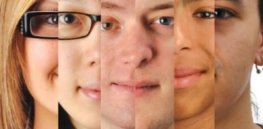
Building a face ‘bit by bit’: Human recognition by monkeys
A monkey’s brain builds a picture of a human face somewhat like a Mr. Potato Head — piecing it together ...
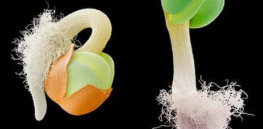
Can plant seeds ‘decide’ when to germinate?
Botanical orthodoxy holds that plant germination is a purely mechanistic process, driven entirely by external stimuli. The plant seed itself ...
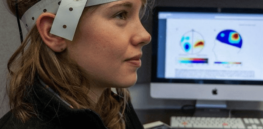
Can zapping our brains with electricity boost learning?
A new study sheds light on why transcranial direct current stimulation (tDCS) -- now being tried by do-it-yourselfers -- doesn't ...
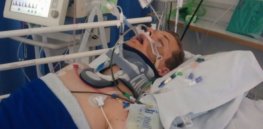
Back to life: Can controversial stem cell treatment revive brain-dead patients?
For any given medical problem, it seems, there’s a research team trying to use stem cells to find a solution...But ...
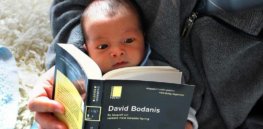
Bell Curve redux: Is the science of intelligence too taboo to research?
A new study identified genes linked to intelligence while a recent interview of political scientist Charles Murray, co-author of The ...
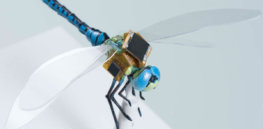
Video: Genetically modified pollinating cyborg dragonfly drone takes flight
[Editor's note: As has been previously reported, these dragonflies could be used for artificial pollination.] A new experiment bypasses the ...

He/She: Brains of men and women hard-wired different because of hormones, genes
[In the past, studying sex-based differences in the brain] was not a universally popular idea. The neuroscience community had largely ...
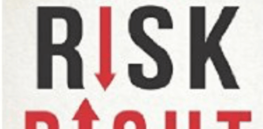
How to resist health scares: Review of Geoffrey Kabat’s ‘Getting Risk Right’
Public health regulations, particularly as regards to chemicals, are often driven by precautionary fears stirred by sloppy reporting sparked by ...
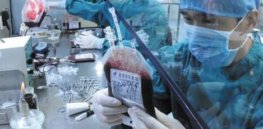
Parkinson’s target of China’s first clinical trial using embryonic stem cells
In the next few months, surgeons in the Chinese city of Zhengzhou will carefully drill through the skulls of people ...

Is ADHD actually a sleep disorder?
Could ADHD [be] a type of sleep disorder? After all, the brain pathways involved in paying attention have also been ...
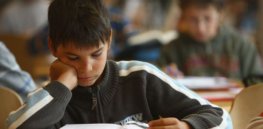
Question of intelligence: How much can we attribute to our genes?
A new study offers evidence that intelligence is primarily affected by our genes. But that doesn't mean education, healthy living ...

Careful, your brain may begin to eat itself if you don’t get enough sleep
Burning the midnight oil may well burn out your brain. The brain cells that destroy and digest worn-out cells and ...
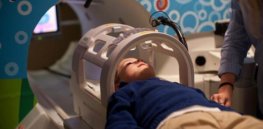
Human ‘tree rings’? Neuroimaging predicts life span and brain age
In recent years, scientists have plumbed the molecular depths of the body and surfaced with tell-tale biomarkers of aging, some ...
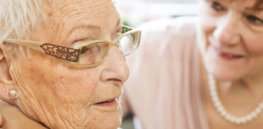
More women suffer from Alzheimer’s and shoulder caregiving
Women make up nearly two-thirds of the more than 5 million Americans with Alzheimer’s disease. A woman in her 60's is ...

Flower power: Decoded sunflower genome could unlock increased oil, stress tolerance
Take that, sunflowers. The convoluted genetic code that has thwarted scientists for so long has finally been cracked. Scientists published ...

What role might genes play in ‘creating’ terrorists?
As more terrorism sweeps across the globe, scientists begin to look at a biological basis for organized violent behavior ...

Is gene therapy research for single-gene diseases at risk under Trumpcare?
[When] the House of Representatives passed the American Health Care Act of 2017,...DNA Science addressed the possibility of the AHCA forcing ...
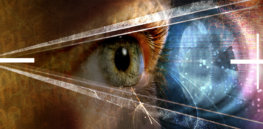
Prospective psychology: Brain’s focus on future guides our behavior and survival
What best distinguishes our species [from other animals] is an ability that scientists are just beginning to appreciate: We contemplate ...

Pope Francis backs gene editing to treat human diseases, but cautions against ‘throwaway culture’
Pope Francis praised scientists searching for treatments for genetic diseases but cautioned against the use of human embryos in their ...
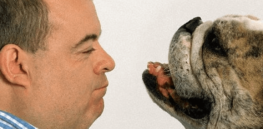
Pooched-out pooches: Obesity-prone dog breeds help us understand and treat overweight humans
[A] research associate let each dog sniff a hot dog before demonstratively placing it inside a small plastic hamster cage ...
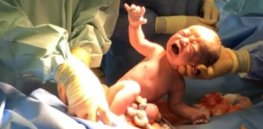
Cesarean section: How this booming birth procedure influences human evolution
The rising use of C-sections around the world is altering the survival rates of mothers and fetuses who might not ...
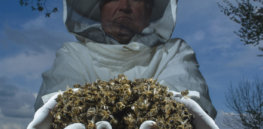
10 years after Colony Collapse Disorder scare, what have we learned about the plight of bees?
Managed honey bees are afflicted by a range of pests, viruses and predators--the worst being the Varroa mite--that have been ...

Sniffing out the truth: Humans do have a good sense of smell
[It's] conventional wisdom that humans’ sense of smell is worse than that of other animals — dogs, mice, moles and ...
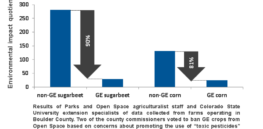
Epigenetics Around the Web: Integrative medicine physicians and new book ‘Born Anxious’ fail Epigenetics 101
A new book hyped by several sites is likely based on pseudoscience, which underscores why physicians need to be more ...
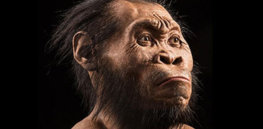
Walked with us: Cave findings show extinct human-like species Homo naledi co-existed with modern humans
Discovered in a South African cave, H. naledi first came to light in 2015, in a paper by University of the Witwatersrand ...
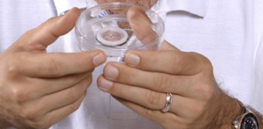
‘Brain in a dish’ gives scientists ‘unprecedented’ ability to study neurodevelopment disorders
Small cultures of human neuronal cells developing in a dish are not quite “brains in a petri dish” as they are ...

Brain damage may spur extreme religious fundamentalism, study finds
Scientists found that damage in a certain part of the brain is linked to an increase in religious fundamentalism. In ...

